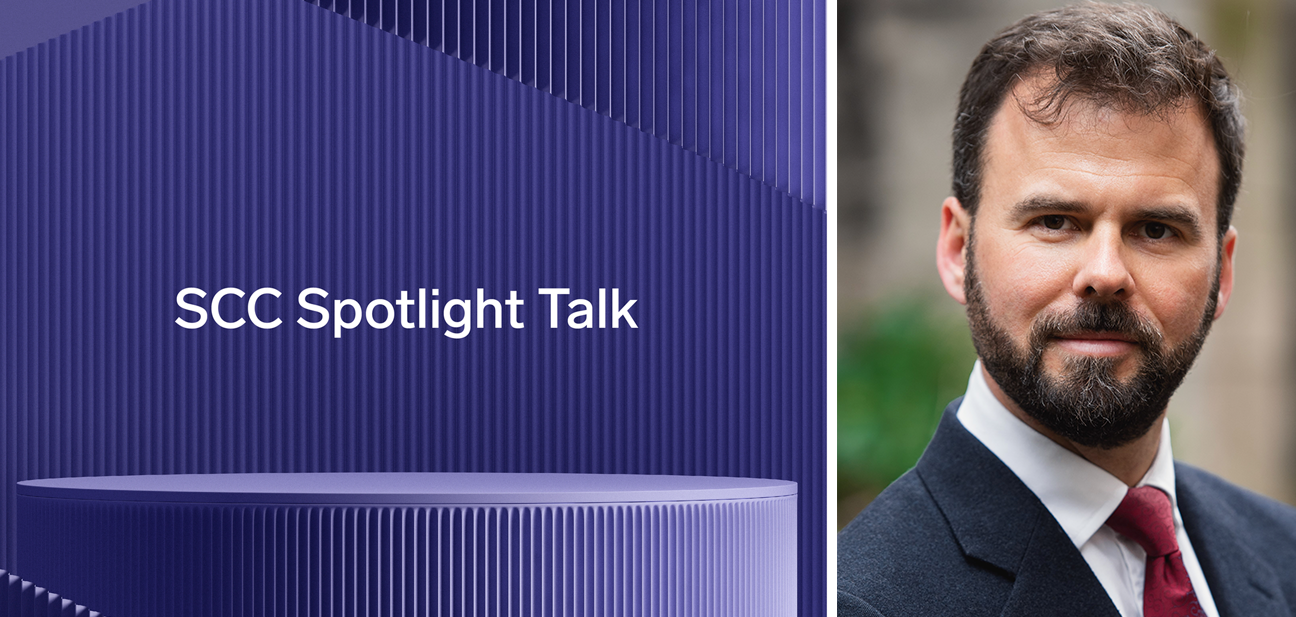The future of Investor-State Dispute Settlement (ISDS) involving green investment disputes
Disputes concerning green investments have been on the rise in recent years. However, the latest developments involving the Energy Charter Treaty (ECT) raise questions about the future of ISDS as a dispute resolution mechanism for green investment disputes. As part of the interview series – the SCC Spotlight Talk – Tomas Vail, Arbitration Lawyer at Vail Dispute Resolution, shares his views on the future of investor-state arbitrations in this area.
Published 2023-05-18

Tomas, you are an experienced practitioner in terms of both commercial and investor-state arbitration. Could you give a brief introduction to the difference between the two and how could disputes concerning green investments arise?
– Commercial arbitration is a process used to resolve disputes between two or more parties that arise out of a contractual relationship and is usually determined in accordance with specified domestic law (e.g., English law). Investment treaty arbitration, on the other hand, is a process used to resolve disputes between foreign investors and host states. This type of arbitration arises under international investment agreements (IIAs) and bilateral investment treaties (BITs) under international law, which provide protection to foreign investors who invest in a host state. As opposed to commercial contracts, BITs, and multilateral treaties are entered into by state parties but allow investors to arbitrate directly against host states for violations of protections accorded under the IIA/BIT.
A green investment involves an investment in the renewable energy industry. For instance, green investment disputes have arisen under the ECT between renewable energy investors and Czechia, Italy, and Spain. Although states initially offered incentives to invest in their respective renewable energy sectors, many governments then rolled back, withdrew, and revoked their renewable energy incentives policies. As a result, upset investors claimed that such regulatory changes violated their right to fair and equitable treatment (FET) provided under the ECT and other IIAs.
Other reasons that may give rise to green investment disputes include the expropriation of assets, cancellation of concession agreements, and further acts and omissions by state entities involved. More generally, in the context of commercial arbitration, disputes regarding green investments can arise between counterparties due to the increased strain on global supply chains, rising costs, and inflation. Some of these are themselves knock-on effects of COVID-19 and Russia’s invasion of Ukraine and can lead to complications, costs, and delays in completing renewables projects.
Disputes concerning green investments could be subject to investor-state arbitration. Are there any specific procedural or otherwise features that set such cases apart from others?
– Investment treaty arbitration of green investments can require being able to distinguish between complex regulatory, financial, and quantum issues, and therefore identifying qualified arbitrators, counsel, and experts is key. Such cases can also involve third-party participation through amicus curiae briefs. The European Commission has repeatedly sought to intervene as a non-disputing party in numerous renewable arbitrations against Spain and Italy under the garb of protecting the interests of EU law before such tribunals.
Some major developments in regard to investor-state arbitration concerning green investments have recently occurred. Could you tell our readers about the most important developments?
– Recent negotiations on the modernisation of the ECT have focused on the promotion of sustainable development and combatting climate change and a gradual phase-out of fossil fuels by individual Contracting Parties. However, the current status of the negotiations is in question after a number of EU member states have announced withdrawals from the ECT, undermining their commitments to promoting foreign investment in renewables.
Could you share some predictions concerning the future of this particular type of dispute?
– First, the EU policy against intra-EU disputes and the trend of EU states withdrawing from the ECT suggests that some states may prefer to resolve green disputes via domestic remedies rather than through investment treaty arbitration. It is worth noting, however, that the sunset clause in the ECT generally continues to protect existing investments for 20 years after a host state’s withdrawal. Second, the spotlight on sustainable development, Environment, Social and Governance (ESG), and Corporate Social Responsibility (CSR) has made its way into newer IIAs, so future tribunals may find that investors must also abide by these norms.
SCC is one of the world's largest institutes for investment disputes. Sweden and the SCC are listed as forums for disputes between investors and states in multiple bilateral investment protection treaties and in the ECT. Click here for more information on our investment dispute services.
In the interview series The SCC spotlight talk, SCC meets practitioners to discuss current issues, challenges, and opportunities in commercial dispute resolution of today.